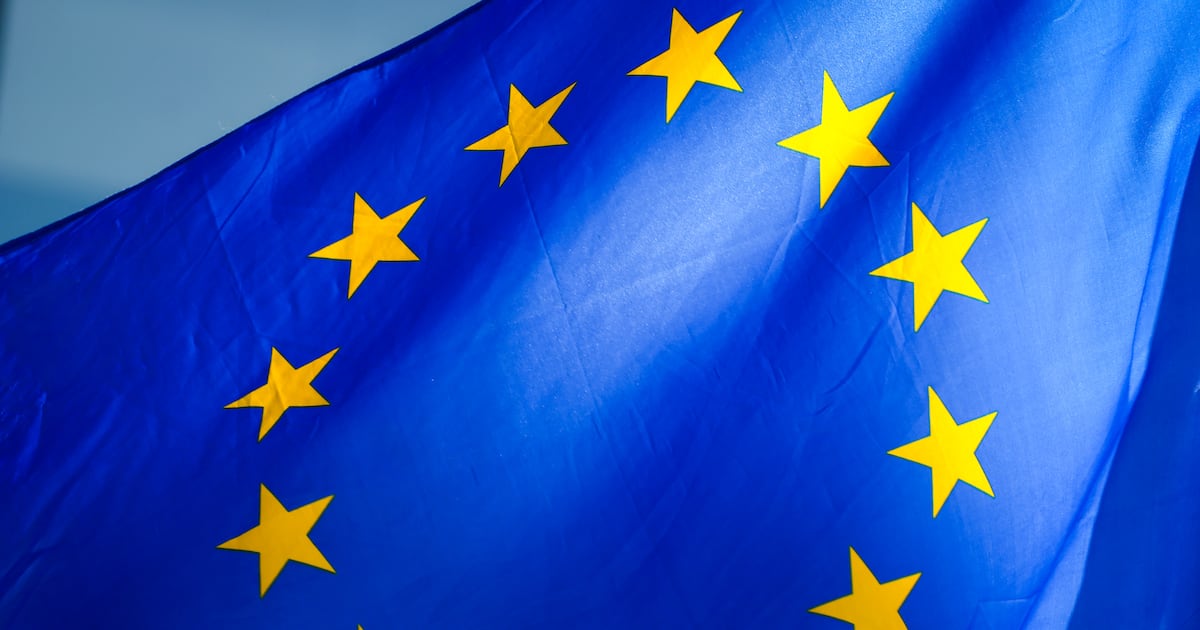Regulation
Hong Kong baby kidnapping marks crime wave targeting cryptocurrency holders – DL News

Shipping to Asia
- Violent criminals are increasingly invading homes to force cryptocurrency holders to hand over their assets.
- It’s not just Hong Kong: a case in the US has revealed a “robbery gang” targeting cryptocurrencies in homes.
- The kidnapped boy was released after the arrest of two alleged kidnappers.
Last week, Hong Kong police arrested two 38-year-old women from mainland China on charges of kidnapping a three-year-old boy.
The two kidnapped him from a shopping mall in the Tseung Kwan O neighborhood on July 3 before demanding a ransom of $660,000 to be paid in USDT, according to a report by Hong Kong Free Press.
Kwan King-pan, the chief superintendent of the Organized Crime and Triad Bureau, told reporters that police raided the apartment where the boy was being held the next day. He was released and appeared unharmed, media reports said.
The official reminded the public that the police are able to track cryptocurrencies.
“Some criminals have mistakenly thought that cryptocurrencies are more difficult to trace, but I stress that the force is capable and determined to bring them to justice,” Kwan said.
Attacks and kidnappings
The incident is the latest in a series of cryptocurrency-related attacks and kidnappings in the city and elsewhere.
In late March, a 19-year-old was lured to a hotel room in Hung Hom under the pretext of trading cryptocurrencies, police said.
Once there, he was approached by a group of nine individuals who demanded that he hand over the HK$180,000 he had earned from cryptocurrency trading.
Join the community to receive our latest stories and updates
Then two members of the group beat him with baseball bats.
Few other details have been released, but the case is once again being handled by detectives who specialize in triad, or organized crime, cases.
And in May, a 55-year-old cryptocurrency investor in Sheung Shui was kidnapped by four men. The men stopped her car and assaulted her husband with a stun gun before kidnapping her.
She was released by her captors about an hour later. The kidnapping was linked to a dispute over a $1.9 million cryptocurrency investment.
Similar crimes occur outside Hong Kong too.
‘Robbery Squad’
Last month, a U.S. court condemned Remy St Felix, 24, was arrested for leading a “robbery squad” that targeted cryptocurrency holders with violent home invasions across four states.
In April 2023, St Felix, of West Palm Beach, Florida, and an accomplice “assaulted, zip-tied, and held the victim at gunpoint, and threatened more violence against the victim and the victim’s spouse, while other co-conspirators transferred more than $150,000 in cryptocurrency from the victim’s account,” according to the United States Department of Justice.
Similar crimes have occurred in the Philippines, targeting Chinese businessmen, who have been kidnapped and held captive for ransom in cryptocurrencies.
Two men, Xia Kefu an and Sun Jing, were kidnapped in the country last month. On June 21, their families received phone calls demanding $2 million in USDT for their release.
Both were found dead near Manila on June 27.
Several participants at the EthCC in Brussels this week also reported on X that they had been victims of assault.
Callan Quinn, DL News Hong Kong correspondent covering the cryptocurrency industry in Asia. Got a tip? Contact the author at callan@dlnews.com.
Regulation
South Korea Moves to Delay Cryptocurrency Tax Until 2028 Amid Market Concerns

South Korean lawmakers have proposed a bill to delay the tax on cryptocurrency earnings until 2028.
The ruling political party proposed the bill on July 12, citing current negative sentiment around the cryptocurrency sector as the reason for the extension. declared:
“With investor sentiment toward virtual assets deteriorating, some argue that hasty taxation of virtual assets is not desirable at this time, as virtual assets are high-risk assets with a higher risk of loss than stocks, and if income tax were also imposed, it is expected that most investors would abandon the market.”
South Korea had originally planned to implement its cryptocurrency earnings tax on January 1, 2025. However, if the new bill is passed, the implementation date will be moved to January 1, 2028. The subcommittee met on July 15 to continue the review.
The move is in line with President Yoon Suk-yeol’s campaign promisesHe assured voters that he would extend the cryptocurrency earnings tax during the last general election if elected. His administration aims to create a clear regulatory framework before implementing the tax.
However, the Ministry of Economy and Finance has not yet decided on the postponement. The ministry plans to announce new amendments to the fiscal policy by the end of the month.
“No decision has been made on further postponing the implementation of taxation of income from virtual activities,” a ministry spokesperson said. She said.
South Korea’s Thriving Cryptocurrency Industry
South Korea is one of the fastest-growing countries in the world in adopting this emerging sector.
In the first quarter of this year, blockchain platform Kaiko reported that the Asian country’s national currency, the Won, emerged as the leading currency for global cryptocurrency trading, with a cumulative trading volume of $456 billion across centralized exchanges.
Furthermore, the Asian country is a shining light for its proactivity approach to cryptocurrency regulationSouth Korea has implemented different rules designed to improve consumer protection standards for cryptocurrency users in its jurisdiction.
Latest stories from South Korea
Regulation
ESAs consult on guidelines for cryptocurrency regulation

THE European Supervisory Authoritiesincluding EBA, EIPA and ESMA, have published a consultation paper on guidelines under the Markets in Cryptocurrencies Regulation (MiCAR).
In doing so, the ESAs intended to develop templates for legal explanations and opinions regarding the classification of cryptocurrencies along with a standardized assessment to support a common approach to classification. In addition, the current move is intended to assist market participants and supervisors in accommodating a standardized test while receiving legal explanations and opinions that provide descriptions of the regulatory classification of cryptocurrencies in different cases. Among them, the ESAs mention:
-
Asset-Referenced Tokens (ART), whose white paper for their issuance must be accompanied by a legal opinion that highlights the classification of the crypto-asset, especially with regard to the fact that it is not an electronic money token (EMT) or a crypto-asset that could be excluded from the scope of MiCAR;
-
Cryptocurrencies that are not considered ART or EMT under the Regulation, for which the white paper must be accompanied by an explanation of the classification of the cryptocurrency, in particular information that is not an EMT, ART or a cryptocurrency are excluded from the scope of MiCAR.
As part of the press release, the ESAs mention that the consultation paper can be submitted directly from the consultation page, with a deadline for submissions of 12 October 2024. After holding a virtual public hearing on the consultation paper on 23 September 2023, the authorities are ready to publish all contributions, unless otherwise requested.
Background
In an effort to establish a framework for the provision of crypto-asset services, MiCAR develops regimes to regulate the issuance, supply to the public and admission to trading of EMT, ART and other crypto-assets. The draft was created under Article 97(1) of MiCAR, which requires authorities to jointly provide by 30 December 2024 the Guidelines pursuant to Article 16 of the ESA Regulations (EU Regulation) No. 1093/2010 Regulation 1094/2010, Regulation 1095/2010) to specify the content and form of the explanation accompanying the white paper on crypto-assets referred to in Article 8(4) and the legal opinions on the qualification of asset-referenced tokens (ARTs) referred to in Article 17(1), point (b)(ii) and Article 18(2), point (e) of MiCAR.
In addition, ESAs are required to include in the Guidelines a model for explanation and opinion and a standardized test for the classification of cryptocurrencies. At the time of the announcement, this was the only joint policy mandate of ESAs developed under MiCAR.
Regulation
Cryptocurrency News Today – July 15, 2024

Welcome to “Crypto News Today”, your daily digest of the cryptocurrency industry.
Bitcoin ETFs surge amid price recovery, market fluctuations
Bitcoin ETFs have seen their best weekly inflows since May, with $882 million in the week ending July 11. Bitcoin’s price has recovered to around $62,000, up 15% from its recent low, reflecting renewed investor interest and market optimism. To learn more, visit the TDR website!
Bitcoin Surpasses Leveraged ETFs
Bitcoin’s price has outperformed risky leveraged ETFs like BITX and BITU, demonstrating the cryptocurrency’s relative stability in a volatile market. Investors are increasingly favoring direct Bitcoin holdings over complex financial products.
SEC Closes Investigation into Hiro Systems
The SEC has concluded its three-year investigation into Stacks developer Hiro Systems without taking any enforcement action. The move brings relief to the company and its shareholders, potentially increasing confidence in the Stacks ecosystem.
Genesis Transfers 760 Million BTC to Coinbase
Amid a market sell-off, Genesis advanced $760 million in Bitcoin to Coinbase. The large transfer has raised speculation about potential trading strategies or liquidity by the digital asset company.
JP Morgan-Backed Partior Closes $60M Series B
JP Morgan-backed blockchain firm Partior has successfully closed a $60 million Series B funding round. The funds will support Partior’s mission to simplify cross-border payments and advance blockchain-based financial solutions.
Cryptocurrencies Become The Theme of 2024
Cryptocurrencies have emerged as a key issue in the 2024 political landscape, with parties and candidates debating regulation, innovation, and the future of digital currencies. This trend underscores the growing importance of cryptocurrencies in economic and political discussions.
Read more cryptocurrency news on the TDR website!
Regulation
How Cryptocurrency Firms Are Capitalizing on MiCA’s Bumpy Launch – DL News

- The MiCA licensing regime will come into force at the end of December.
- Levels of severity vary from country to country.
- This will create opportunities for companies to engage.
Stablecoin laws have already come into force, but EU countries are rushing to comply with the rest of the Union’s new cryptocurrency regulation before the deadline.
The EU regulatory framework requires cryptocurrency businesses such as exchanges to choose a country in which to apply for a license. In practice, countries will inevitably have different levels of stringency.
The Markets in Crypto-Assets regulation is designed to introduce a level playing field across the EU, as national regulators will have to adhere to the same set of standards. Once licensed, crypto-asset service providers, or CASPs, can move their services anywhere in the bloc.
Additionally, countries are allowed to opt for longer transition periods before enforcing the MiCA rules. This is known as the grandfathering period.
All of this could call into question the level of compliance in some countries.
— Ernest Lima, XReg Consulting
That creates opportunities for cryptocurrency firms to seek out jurisdictions with lighter rules and less enforcement, said Ernest Lim, a partner at consultancy XReg. DL News.
“Cryptocurrency companies registered or licensed in different EU member states may be subject to different requirements” between January 2025 and July 2026, Lima said.
Due to time and capacity constraints, some local regulators may have difficulty processing applications in time for the deadline, he added.
“Some may not even have sufficient resources to adequately supervise licensed CASPs,” Lima said.
Join the community to receive our latest stories and updates
“All of this could call into question the level of compliance in some countries.”
Companies are already exploiting the patchy way MiCA regulations are enforced in the EU, in a practice known as regulatory arbitrage, Lima said.
Just the beginning
MiCA’s stablecoin laws went into effect on July 1st, marking the start of the launch.
The next stage is the MiCA licensing regime for cryptocurrency businesses, including exchanges, custodians and investment firms, which will come into force on December 30.
Although the new rules will be stricter, CASPs registered in one country will be able to offer their services throughout the EU27 under the MiCA ‘passporting’ provisions.
Some countries with simpler registration requirements already have significant numbers of VASPs on their registers.
Lima said he expects the number of CASPs in Europe to consolidate significantly, especially in those countries.
In countries with more flexible regulators, companies can benefit from a relatively simple registration process to enter Europe.
According to XReg data, for example, Lithuania has 588 VASPs, while Germany has 12.
Transition period
The MiCA safeguard period will also impact where companies apply for licenses, Lima said.
The grandfathering period is a transition starting on December 30, during which companies can switch to the more stringent CASP regime.
Countries can grant cryptocurrency firms up to 18 additional months from December 30, although the EU securities watchdog recommends a 12-month safeguard period.
In assessing how much time to give companies to transition to the CASP regime, countries will have considered “how prepared they are internally to process applications, the gap between MiCA and their current regime, and the number of companies currently registered in their jurisdictions, all of which influence the workload associated with the transition,” Lima said.
Some countries have announced their transition, others have not, he added.
Among those who have announced:
- France will allow a ramp-up period of 18 months. The country already has a regime similar to MiCA in place.
- Many countries, including Ireland, Germany, Spain and Austria, are opting for the recommended 12-month transition.
- Lithuania, which has very lax AML requirements and a large number of registered VASPs, has been at a standstill for five months.
- The Netherlands will implement the MiCA regime on 30 December and is already accepting applications.
Strategie
Lima said that cryptocurrency companies are evaluating different strategies to take advantage of this uneven distribution.
Some companies are aiming to comply as soon as possible, by December 30, which means they will be the first to avail themselves of passporting rights and gain market share in the EU.
“Others are opting to file multiple applications in EU jurisdictions,” he said.
This approach allows a firm to benefit from a transition period in a trusted jurisdiction while working on a MiCA application.
However, he said that time was running out: local regulators were preparing to start the MiCA application process.
“Soon there will be no more time to process new applications.”
Lima said some companies have no intention of ever complying with MiCA.
Instead, they chose to continue working as long as possible before closing their businesses for good.
Contact the author at joanna@dlnews.com.
-

 News1 year ago
News1 year ago“Captain Tsubasa – RIVALS” launches on Oasys Blockchain
-

 Ethereum1 year ago
Ethereum1 year agoComment deux frères auraient dérobé 25 millions de dollars lors d’un braquage d’Ethereum de 12 secondes • The Register
-

 News1 year ago
News1 year agoSolana ranks the fastest blockchain in the world, surpassing Ethereum, Polygon ⋆ ZyCrypto
-

 Videos1 year ago
Videos1 year agoHistoric steps for US cryptocurrencies! With a shocking majority vote!🚨
-

 Videos1 year ago
Videos1 year agoIs Emorya the next gem💎 of this Bitcoin bull run?
-

 News1 year ago
News1 year agoSolana Surpasses Ethereum and Polygon as the Fastest Blockchain ⋆ ZyCrypto
-

 Videos1 year ago
Videos1 year agoNexus Chain – Ethereum L2 with the GREATEST Potential?
-

 Ethereum1 year ago
Ethereum1 year agoScaling Ethereum with L2s damaged its Tokenomics. Is it possible to repair it?
-

 News1 year ago
News1 year agoFnality, HQLAᵡ aims to launch blockchain intraday repositories this year – Ledger Insights
-

 Regulation1 year ago
Regulation1 year agoFinancial Intelligence Unit imposes ₹18.82 crore fine on cryptocurrency exchange Binance for violating anti-money laundering norms
-

 Bitcoin1 year ago
Bitcoin1 year agoBitcoin Drops to $60K, Threatening to Derail Prices of Ether, Solana, XRP, Dogecoin, and Shiba Inu ⋆ ZyCrypto
-

 News1 year ago
News1 year agoSendBlocks Debuts with Major Support to Improve Blockchain Data Management






















